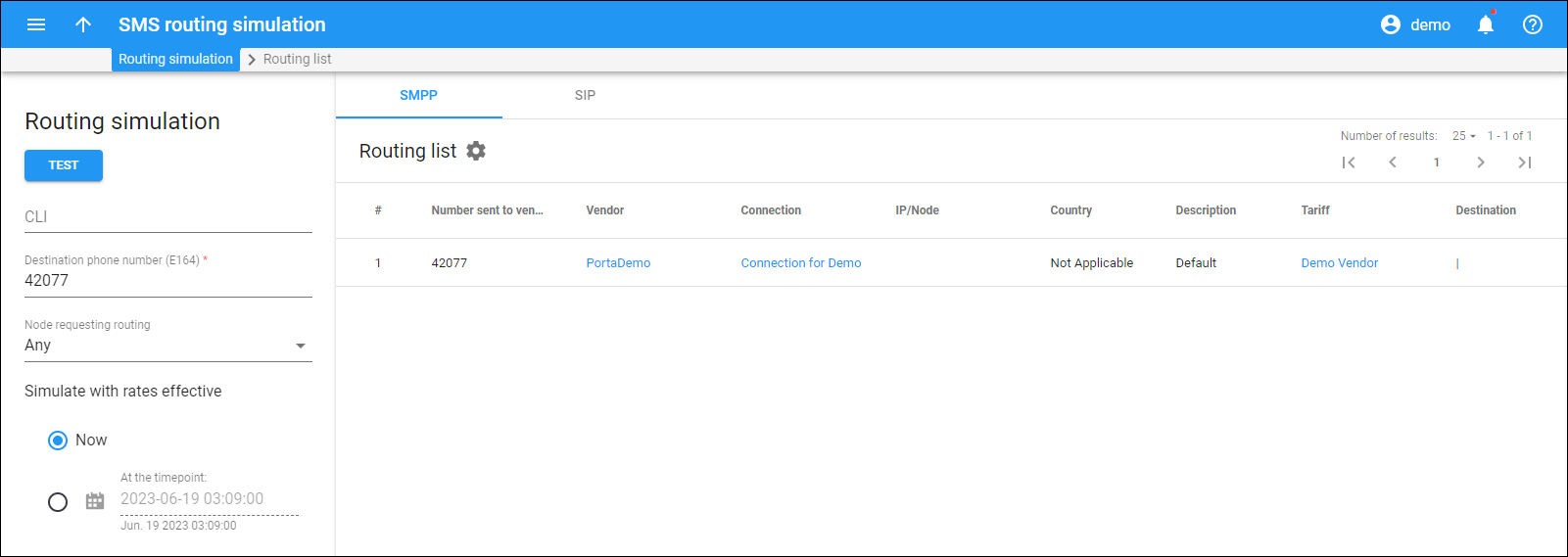The Routing list panel displays the list of routes for SMSes that match your routing simulation parameters. The SMPP tab shows the routes that are processed via the SMPP protocol. The SIP tab shows the routes that are processed via the SIP protocol.
Refer to the Understanding SMS routing section for more details.
The routes on the Routing list panel are tried according to their position on the list.
Each entry on the routing list consists of:
#
The sequential number shows the route order. The routes from the top of the list will be tried first.
Number sent to vendor
The translated called station ID (DNIS), as it will be sent to the vendor using this route.
Vendor
The terminating vendor. Click the vendor name to open the corresponding vendor page.
Connection
The name of the vendor connection. Click the connection name for the connection details.
IP/Node
The node (or remote gateway IP) where the SMS is routed.
Country
The country the tested destination number or prefix belongs to.
Description
The destination description.
Tariff
The name of the vendor tariff used for charging an SMS. Click the tariff name for the tariff details.
Destination
The matching destination from the tariff.
Price
The price per message.
Peak level
Shows whether “Peak”, “Off-peak”, or “Second off-peak” price is applied at the selected time. To add/remove this column, click Settings on the title bar, click Customize columns, and select/clear the Peak level checkbox.
Route category
The route category, e.g., “Premium,” “Cheap”, specified in the corresponding rate.
Preference
The routing priority specified in the corresponding rate.
Huntstop
The Check mark indicates that this route has huntstop enabled. This signals that the routes with a lower route category or preference will be ignored. See the Rate routing parameters section for more details on routing parameters.



